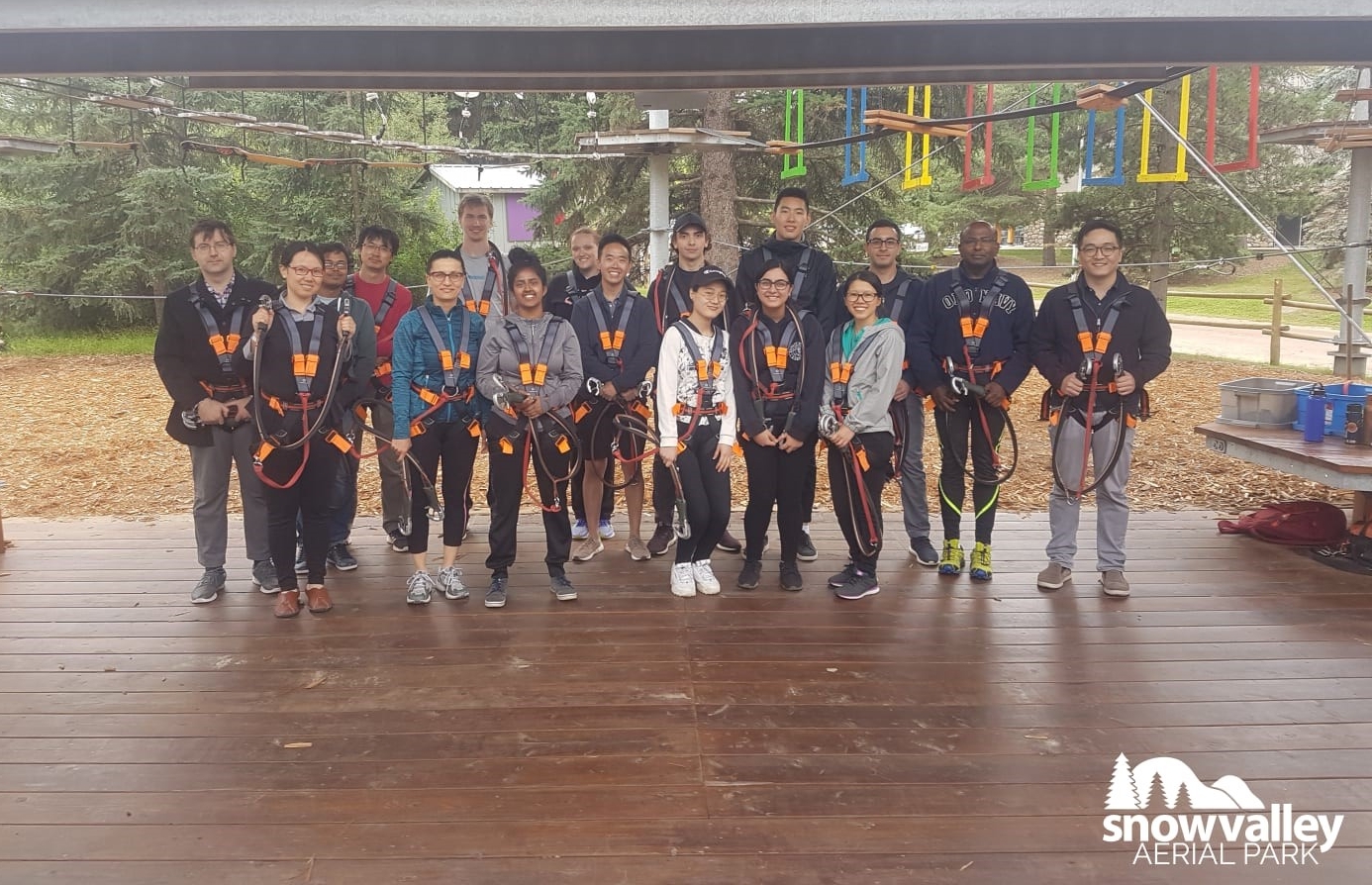Science in COVID-19 Crisis – A Leadership Experience During COVID-19
Billy Wang - 04 June 2020

Dr. Gavin Oudit's research group at a team-building exercise.
Undoubtedly all our lives have changed to cope with the “new norm” of the COVID-19 pandemic, forcing us to develop new habits and ways of life. The Alberta government’s swift response, informed by recommendations from scientific experts, has proven effective in mitigating the spread of COVID-19 in Alberta. Scientific leadership has been at the forefront of this crisis, most significantly in the unprecedented collaborative effort across the global scientific community to understand the virus and develop means to combat it.
Evolution works in mysterious ways, and when it became evident that the new severe acute respiratory syndrome coronavirus 2 (SARS-CoV-2) targets angiotensin-converting enzyme 2 (ACE2) to facilitate cell entry, our research group was presented with a unique opportunity in the collective battle against COVID-19. ACE2 has a crucial functional role in our bodies by serving as a master controller of the renin-angiotensin system, which regulates blood pressure, fluid volumes and many cellular processes. Over the past twenty years, our research group, led by Dr. Gavin Oudit, pioneered research that extensively characterized the key protective effects of ACE2 in the cardiovascular system.
Leadership in a scientific field stems from using evidence-based communication to further our understanding, accompanied by a shared responsibility to protect the integrity and public trust in scientists. Credibility is especially important during times of uncertainty when misleading and false information can be as dangerous and harmful as the coronavirus itself. The rise of ACE2 to international notoriety was surrounded by controversy, as intuitively, many in the scientific community believed that a higher ACE2 level correlates to increased COVID-19 susceptibility and severity. Such beliefs led to suggestions of withholding several classes of life-saving renin-angiotensin system blockade medications that increase ACE2 levels in animal models, on the grounds that patients with cardiovascular disease and diabetes fared much worse when infected with COVID-19. However, our previous findings from SARS patients and animal models support the importance of ACE2 in countering damage associated with the SARS-CoV-2 infection. Loss of ACE2 would lead to detrimental outcomes for people fighting several diseases, including COVID-19. Knowing this, we proposed an alternative interpretation in the early stages of the outbreak. We argued that ACE2 is a double-edged sword that facilitates viral infection, but also regulates the renin-angiotensin system to prevent organ damage and attenuate symptoms of COVID-19, thus providing a unique therapeutic opportunity. This view became widely accepted by the scientific community and supported by articles in the New England Journal of Medicine article confirming our hypothesis of the absence of harm associated with these medications. Subsequently, a global effort has launched, including our nationwide trial, to examine the safety and efficacy of renin-angiotensin system blockade in alleviating symptoms and slowing COVID-19 progression in patients.
The Chinese word for crisis is composed of two characters meaning “danger” and “opportunity.” While COVID-19 presents a significant risk to public health; it also helps us to learn more about our innate physiology and immunity. New articles are published in journals and preprint servers every day, refining our knowledge about COVID-19 and moving us a step closer to developing strategies for prevention and management. In the face of this unprecedented effort to advance our understanding and address this crisis, it is imperative that we safeguard the integrity of science to avoid dissemination of misleading and unproven information that may lead us astray. As such, I view scientific leadership during COVID-19 as using effective and evidence-based communication against potential misconceptions and guiding the community towards the development of novel strategies to combat the global pandemic.
Billy Wang is a MSc Student in the Department of Medicine that has completed PLLC's Dive program for graduate students.